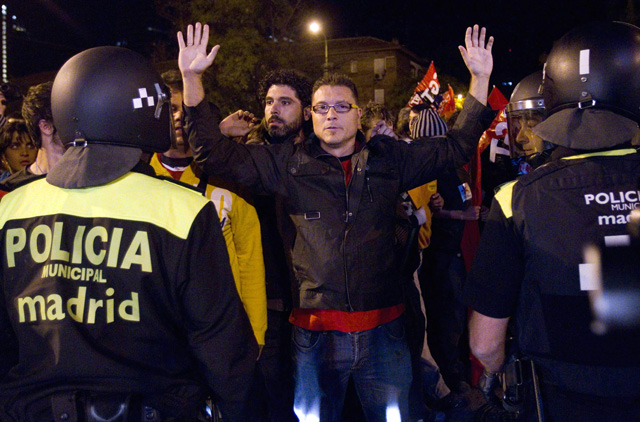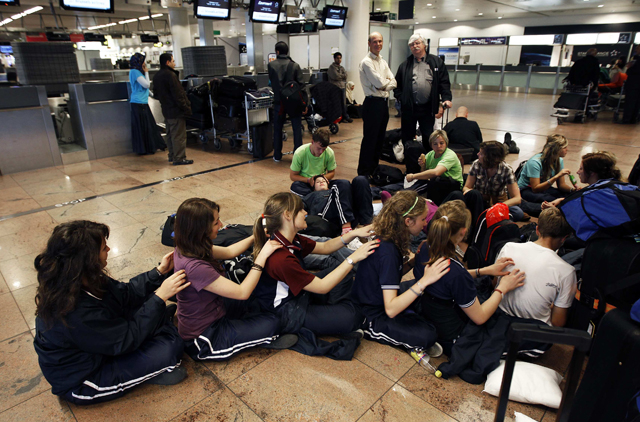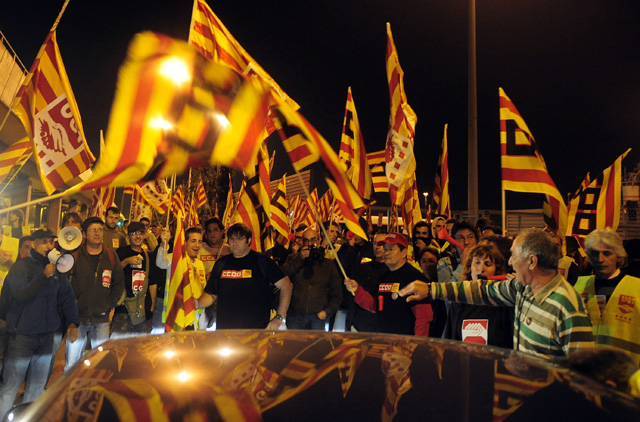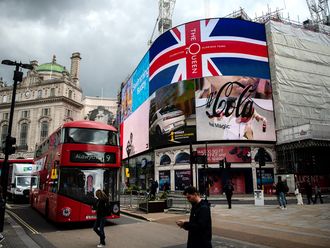
Brussels: Painful cuts by overspending EU countries come head to a head with mounting social anger on Wednesday when labour leaders call angry workers onto streets right across the continent.
Set for its largest Europe-wide protest for a decade is Brussels where labour leaders are planning to bring 100,000 people from 30 countries to say "No to austerity!"
General strike starts in Spain against austerity
"We will demonstrate to voice our concern over the economic and social context, which will be compounded by austerity measures," John Monks, general secretary of the European Trade Union Confederation.
The protest, the biggest such march since 2001 when 80,000 people spilled into the EU capital, is being held to coincide with a plan to fine governments running up deficits.
Detailed proposals are due to be released by the 27-nation bloc's executive arm, the European Commission, with the continent's finance ministers also gathering in Brussels this week.
The human cost of the crisis in Europe
Millions of jobs fell off the European map in the global downturn and many more look set to be squeezed as governments axe public spending.
"This is a crucial day for Europe," said Monks, "because our governments, virtually all of them, are about to embark on solid cuts in public expenditures.
"They're doing this at a time where the economy is very close to recession, and almost certainly you'll see the economy go back into recession as the effect of these cuts take place."
In Spain, where trade unions have called a general strike on Wednesday, unemployment has more than doubled, with one in five workers jobless in July.
Madrid in consequence is looking at a drastic overhaul of its labour legislation to ease flexi-time and hiring and firing. Pensions are frozen, wages cut for civil servants and VAT taxes on the rise.
But elsewhere labour leaders are equally concerned.
Portugal's leading labour confederation, the CGTP, which is close to the communists, has called protests in Lisbon and Porto and hopes for more than 10,000 participants.
Poland's main unions, Solidarity and OPZZ, expect "several thousand" at a protest outside government headquarters.
Similar marches are scheduled in Greece, Ireland, Italy, Latvia and Serbia, with labour leaders across the board clamouring for growth and protesting the injustice of workers paying for the errors of the financial sector.
"Those responsible for this crisis, the banks, the financial markets and the ratings agencies are all too quick in asking for help from states and public budgets and today want the workers to pay for their debts," said French labour leader Jean-Claude Mailly, who heads the FO union.
But while Europe tries to clean up its post-recession books, a backlash has begun among voters focused on vast anticipated numbers of public sector job cuts.
The worker backlash was clearly seen in Britain, where Labour unions, lawmakers and party members handed their leadership to left-leaning Ed Miliband - in a surprise, last-minute defeat for his better-known, centre-right brother and former foreign secretary David.
"We're a rich part of the world," said Monks.
"We're going to keep this campaign going, fight for growth, fight for jobs, fight to protect social Europe. Don't go down the austerity route."
















